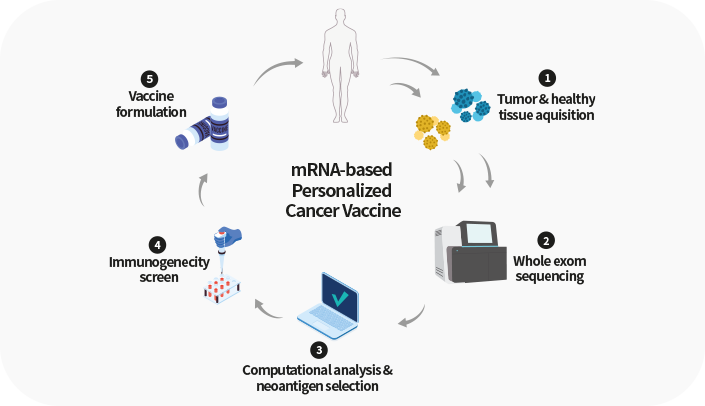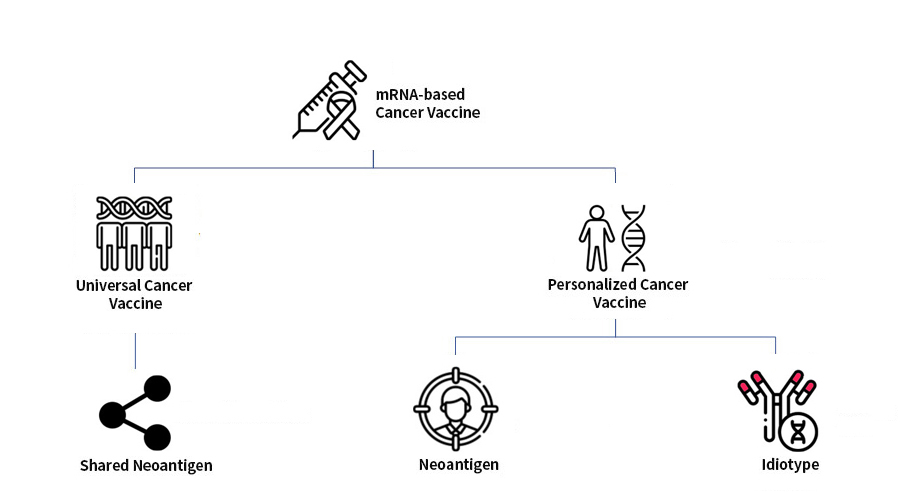
Principles of mRNA-Based Cancer Vaccine Production
The mRNA-based cancer vaccine begins with analyzing the genetic information
from the patient's cancer tissue that has been extracted. Utilizing bioinformatics
and AI-based technology, effective tumor neoantigens are selected.
Following the immune screening process for the chosen neoantigens,
candidate vaccine substances are selected.
The process involves synthesizing mRNA encoding the antigen sequences
and forming them into lipoplexes.
This results in the creation of a personalized cancer vaccine
tailored to the patient, which is then supplied to them.

Mechanism of Action of mRNA-based Cancer Vaccine
Cancer vaccines are designed to induce an immune response against tumor antigens.
When mRNA-based cancer vaccines are administered, the introduced mRNA is expressed as antigen proteins within the body.
It is then transported to lymph nodes, where it activates antigen-specific B cells and T cells.
This activated antigen-specific immune system targets and eliminates tumor cells that express the tumor antigens.
Renhaim Inc. is conducting research and development of three types of mRNA-based cancer vaccines to provide optimal anti-tumor treatments for cancer patients with weakened immune functions.

Universal Cancer Vaccine
This is a universal cancer vaccine that utilizes the mRNA of shared neoantigens commonly present in patients.
Personalized Neoantigen
Cancer Vaccine
It is a personalized cancer vaccine using mRNA of neoantigens obtained from tumor tissues for each patient.
Personalized Idiotype
Cancer Vaccine
This is a personalized cancer vaccine created by screening the variable region sequences of the antigen-binding fragment region (Fab) of patient-derived antibodies, selecting tumor-specific regions, and producing them as mRNA.